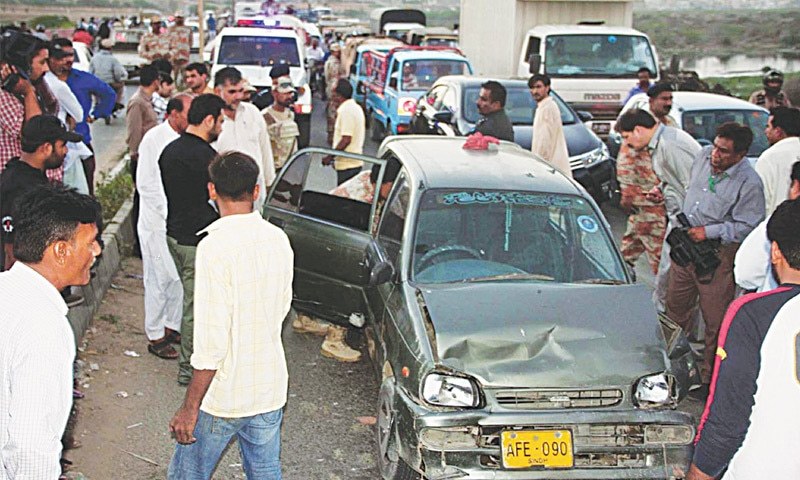System Assisted Escape From the Law
Police systems are designed to control and prevent crimes. A dysfunctional system, on the contrary, could do just the opposite. Consider the following incident that took place in Karachi on September 30, 2016.
Three policemen were driving two suspected criminals back to the Korangi Police Station after a court hearing. The suspects had been taken to the court for charges of killing a policeman on Sept 20. On their way to the police station, the two criminals overpowered the police, killing one and critically wounding the other. Both criminals managed to escape and have not been apprehended so far.
The police and the under-custody criminals were travelling in a small private car. They were neither handcuffed nor restrained. Abdul Wasay, the policeman who was driving the car claimed this to be his personal vehicle. A quick verification from the Excise and Taxation website however suggests that the car AFE-090 is owned by someone else named Karim Bux. Motor Vehicle tax had not been paid for this car for the last one year. The weapon used for killing and wounding the two policemen belonged to Abdul Wasay, the policeman at the steering wheel.
In a completely dysfunctional system it is no surprise that the criminals under custody can easily escape after killing their escorts. Why were the suspected criminals being carried in a private car instead of a prisoner transport vehicle? Why were they not handcuffed? Did the criminals snatch Abdul Wasay’s official pistol or was it passed on to them? How come Abdul Wasay claimed the car as his property while the records show a different ownership?
Nine police mobiles and scores of policemen escort the family members of the head of a political party in Karachi. In contrast, the killers of our policemen are carried unchained in small ‘benami’ personal cars. Why is the police reluctant to reform a system that acts like a death-trap for 80-100 policemen in Karachi every year?
The Sindh government ought to be held responsible for its criminal negligence – and for not permitting the police to be independent of politics and politicians.




